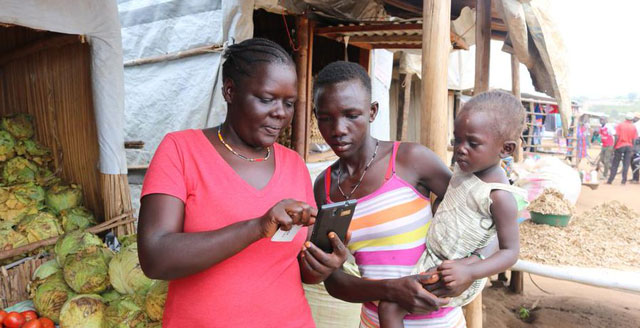
INSURANCE AND MOBILE PHONES: Policymakers across the region need to implement policies and practices that stimulate growth
Kampala, Uganda | ISAAC KHISA | The Sub-Saharan African region is set to be the hotbed for mobile phone services as the young population owns more devices in the next six years.
Latest data from Global System for Mobile Communications (GSMA), a non-profit organisation that represents the interests of more than 750 mobile operators across the world, shows that the number of unique mobile subscribers in the Sub-Saharan Africa are expected to surge from 456 million in 2018 to 600 million customers by 2025.
And with the young population expected to be the majority of the new mobile subscribers, there is a general consensus that this will significantly influence mobile usage patterns in the near future.
The development is also expected to push the contribution of mobile phone technologies and services to the region’s Gross Domestic Product from 8.6% or $144bn in 2018 to 9.1% or $185bn in 2023.
Experts say that this development is good news to two sectors of telecom and insurance.
This is because it provides immense opportunities for the region’s insurance industry to ride on the surging number of mobile phone usage to expand their services to the vulnerable people in the communities – the so-called “bottom-of-the-pyramid” hooked to the telecom services.
This, the experts, means insurance firms need to come up with tech-enabled micro-insurance products where consumers can enrol and register for insurance services using simple mobile phones; send claims documentation using WhatsApp and receive pay-outs via mobile money services. It also calls for insurance firms to seek partnerships with telecom firms to reach a wide clientele with ease at a low cost.
Notwithstanding the fact that mobile technologies are at the heart of Sub-Saharan Africa’s digital journey, it is also essential for policymakers in the region to implement policies and best practices that enable sustainable growth for the micro-insurance product segment.
Currently, many institutions in the region seem to be already positioning themselves to expand their insurance services through the provision of tech-enabled micro-insurance services such as personal life, funeral covers, pension plans, credit life, saving plans, health or medical bills, crop destruction, agricultural inputs, burglary and property destruction, to the low income market segment.
For instance, in Uganda, the Insurance Institute of Uganda (IIU) has partnered with the International Labour Organisation (ILO) and Financial Sector Deepening Uganda (FSDU) to train local insurers so that they can unveil micro-insurance services.
The Institute has also partnered with the aBi Trust to design a digital platform that will link up insurance firms and the financial service providers including savings and credit cooperative societies (Saccos) for easy distribution of micro-insurance products, according to the Institute’s head of training and research, Jonan Kisakye.
“We believe developing this mobile platform will facilitate distribution of insurance services to target low income earners,” Kisakye told The Independent in an interview.

aBi Trust was set up in 2010 by the governments of Uganda and Denmark to support agribusiness initiatives, with a focus on the private sector, to increase their contribution to the agricultural sector by increasing productivity and competitiveness, leading to poverty reduction and economic growth.
The Institute has also organised a two-day international insurance conference to be held at Speke Resort, Munyonyo, starting Oct.17, to discuss the opportunities that lie ahead in the insurance industry, particularly in the micro-insurance business segment.
Mariam Nalunkuuma, the senior communication officer at the Insurance Regulatory Authority of Uganda told The Independent that the regulator, just like the other industry regulators in the region, is putting in effort to ensure that the local insurance industry does not miss out on the on-going digital transformation.
“Given that the number of people using mobile transactions is increasing, it means that the insurance industry can’t do much, “she said, “It has to use any available channel including the digital platforms to ensure that there’s inclusive insurance.”
Nalunkuuma said mobile platforms will enable insurance firms to create a larger customer base, through data analytical tools and social media marketing campaigns. She said the tech-enabled micro-insurance will also help extend insurance services directly to the consumers at low costs due to elimination of intermediaries and thus boost penetration.
Currently, Insurance penetration in Africa stands at an average of 3% according to PWC. In Uganda it is still at less than 1% amidst the fastest growth insurance premiums. At this level, Uganda’s insurance penetration is lower in the East African region. Kenya’s insurance penetration stands at 2.85%, Tanzania’s 2.3% and Rwanda’s 1%.
Nalunkuuma says the IRA has also submitted Mobile Network Operators guidelines to the finance and information communication ministries to protect the interest of policy holders who would buy any tech-enabled micro-insurance products.
“Of course, these regulations are not a deterrent for an insurer to be innovative, we simply want them to work better,” she added.
The neighbouring Kenya is also coming up with regulations to guide the rollout of tech-enabled micro-insurance products.
 The Independent Uganda: You get the Truth we Pay the Price
The Independent Uganda: You get the Truth we Pay the Price


